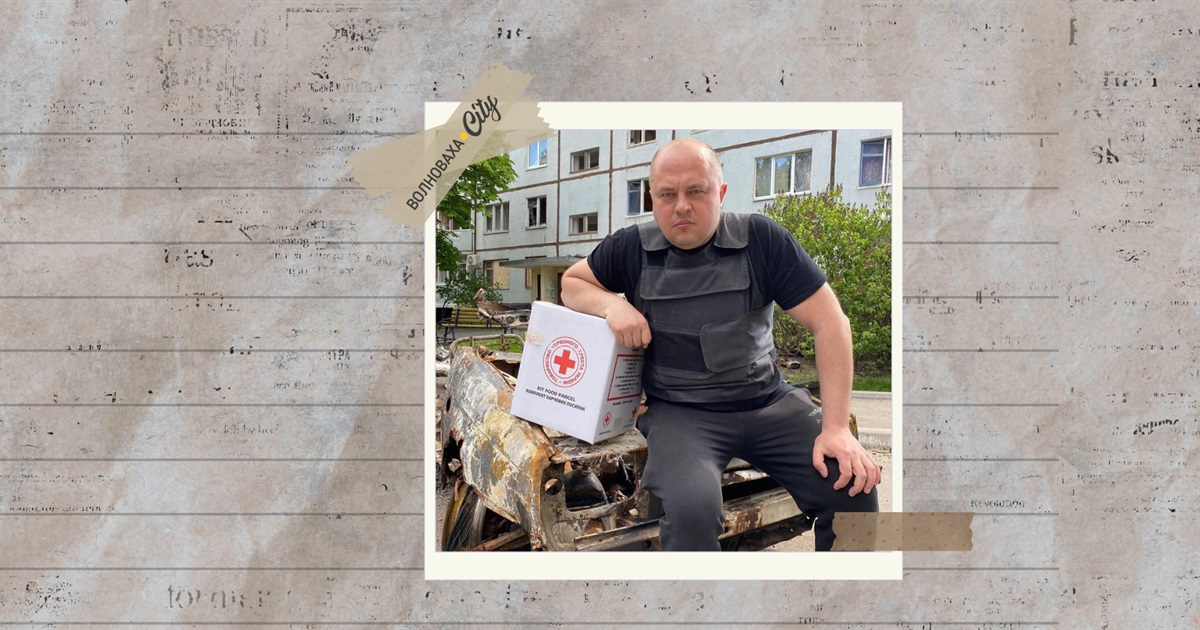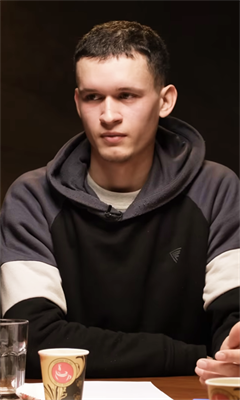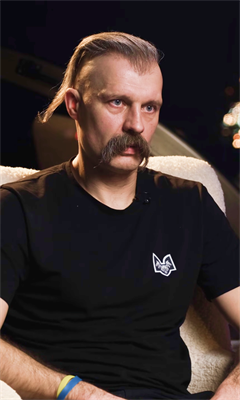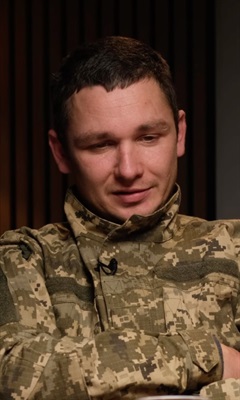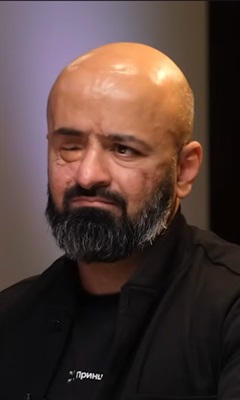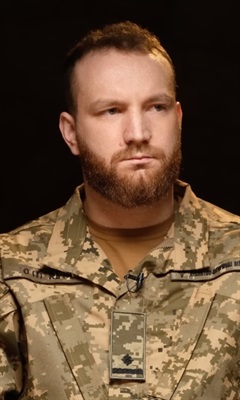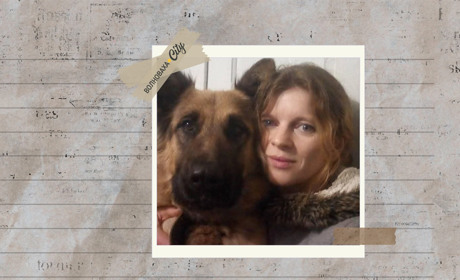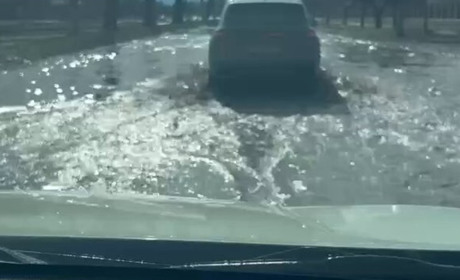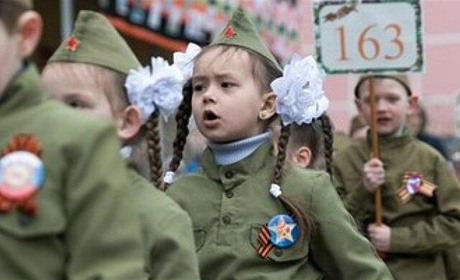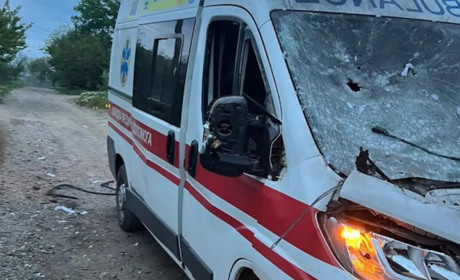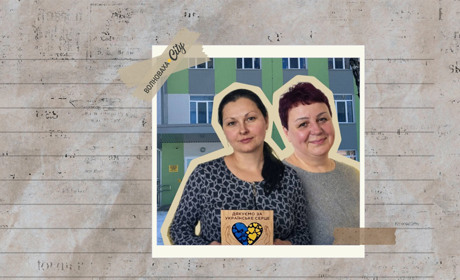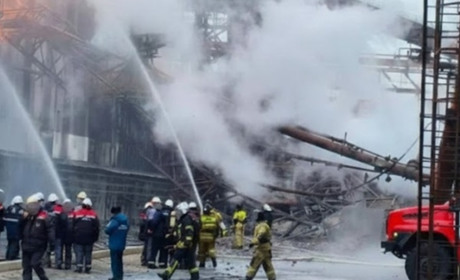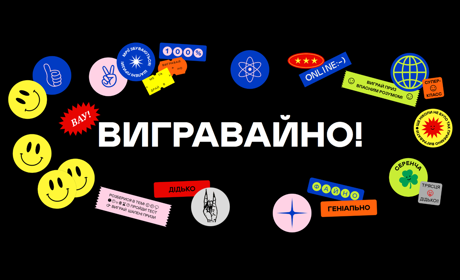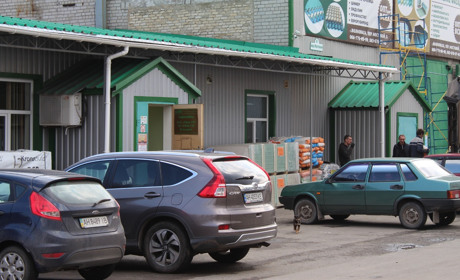Oleh Yakovlev from Kharkiv has been helping residents of frontline communities in Donetsk region for over two years. For Volnovakha.City, he shared his journey from anti-corruption investigator to volunteer, spoke about residents of the Volnovakha district who have been living under shelling without comfortable conditions for years, and about a Russian spy he repeatedly encountered in Bohoyavlenka.
From investigations to humanitarian mission
Before the full-scale invasion, Oleh Yakovlev worked at the non-governmental organization "Uprava" and conducted journalistic investigations in Kharkiv. He says that in 2021, thanks to one such investigation, they managed to remove Aina Tymchuk from her position as head of the Kharkiv Regional State Administration due to her connections with Russia.
When the full-scale invasion began, despite having a wife, a three-year-old son, and a seven-month-old daughter waiting for him at home, Oleh joined volunteer activities from day one.
"We started working immediately with a team on the front line of Kharkiv region, in the Balakliya community. We secured support from powerful partners such as the National Committee of the Ukrainian Red Cross, the Danish Red Cross, and together with the leadership of the Balakliya community, we worked exclusively near the front line — at a distance of three to five kilometers," says the volunteer.
In May 2022, friends introduced Oleh to the non-governmental organization "Ordinary People," which since 2019 had primarily focused on supporting children in orphanages but reformatted its activities to help residents of frontline territories after the Russian invasion. From that day until now, as part of this NGO, the volunteer has been going on charitable missions, including to the Volnovakha district.
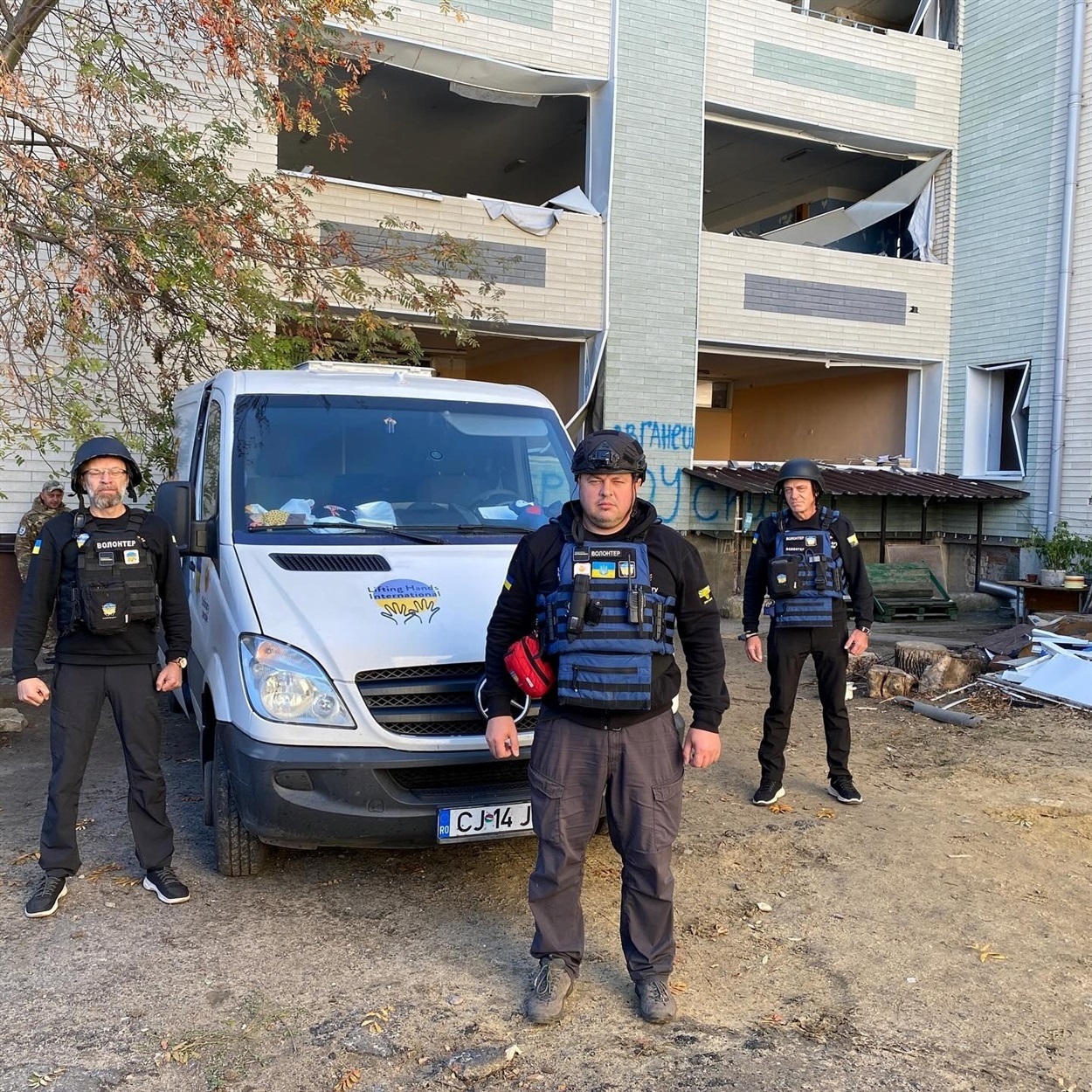 Oleh Yakovlev with the team of volunteers from NGO 'Ordinary People'"Фото: Волноваха.City
Oleh Yakovlev with the team of volunteers from NGO 'Ordinary People'"Фото: Волноваха.City
"Let me show you what real problems are"
Great Novosilka is the place that Oleh remembers most vividly, a place that has become almost like home to the volunteer during the war.
"People in the local gymnasium had been living without electricity and water since March 2022. When we visited them with a doctor, people asked us for magnifying glasses because they were losing their eyesight due to the constant lack of light...
You know, when people in relatively safe settlements complain to me about how difficult it was for them when they had no electricity for half a day or a day, I constantly tell them how people from frontline territories have been living without electricity for years, yet they cook food every day and even manage to escape from guided bombs. It's very frightening to see these people cry, say goodbye, and say things like: 'Unfortunately, we won't see each other again. We are very grateful to you.' We heard such words in Maksymilianivka and in the Shakhtarska community.
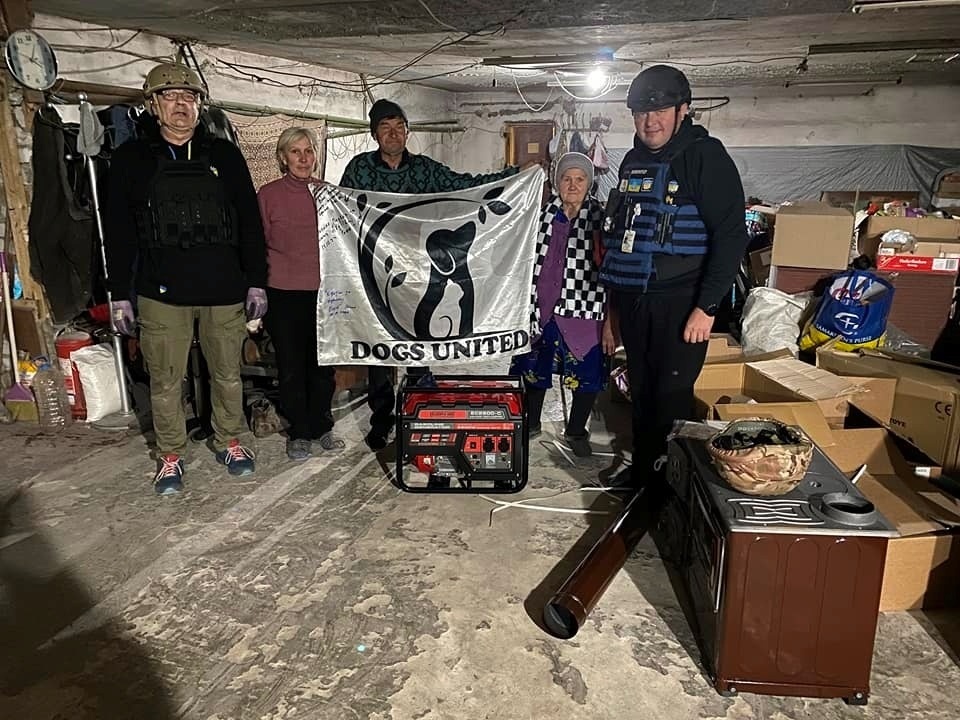 Oleh Yakovlev with residents of MaksymilianivkaФото: Волноваха.City
Oleh Yakovlev with residents of MaksymilianivkaФото: Волноваха.City
So when in our lives, further from the front, someone complains about problems, I immediately say: 'Stop, wait a minute. Let me show you what real problems are,' and I show videos and stories of people from the front.
Throughout my volunteer journey, I've observed how acquaintances and colleagues went through 'burnout.' Several specialists from the organization who were experiencing burnout at work came with me to the frontline territories and visited people... One village, then another, then a third, and after that, they truly changed their perspective on their problems. They said: 'Yes, we understand that things aren't so bad for us, and things have really changed,'" Oleh recalls.
The man has witnessed life in the worst conditions. One such case occurred in Vuhledar. Volunteers delivered humanitarian aid and asked for the exact number of people in one of the basements to bring them the necessary number of packages.
"A local resident says 'there are five of us,' but we count and see that there are four. 'Look, here's our fifth,' — the woman points to her 98-year-old mother, completely paralyzed, lying in a dark, damp corner. We didn't even see her right away. It's hard to imagine how she felt there," the volunteer shares.
Oleh also recalls a story from Great Novosilka, where people lived in basements on pallets, with many mice around.
"One woman in the gymnasium showed me her 'apartment' — pallets with wooden slats stretched across, next to a five-liter gas cylinder and a burner to provide a little heat. She says: 'My husband died on this bed, I buried him, and now I continue to live here,'" the man shares.
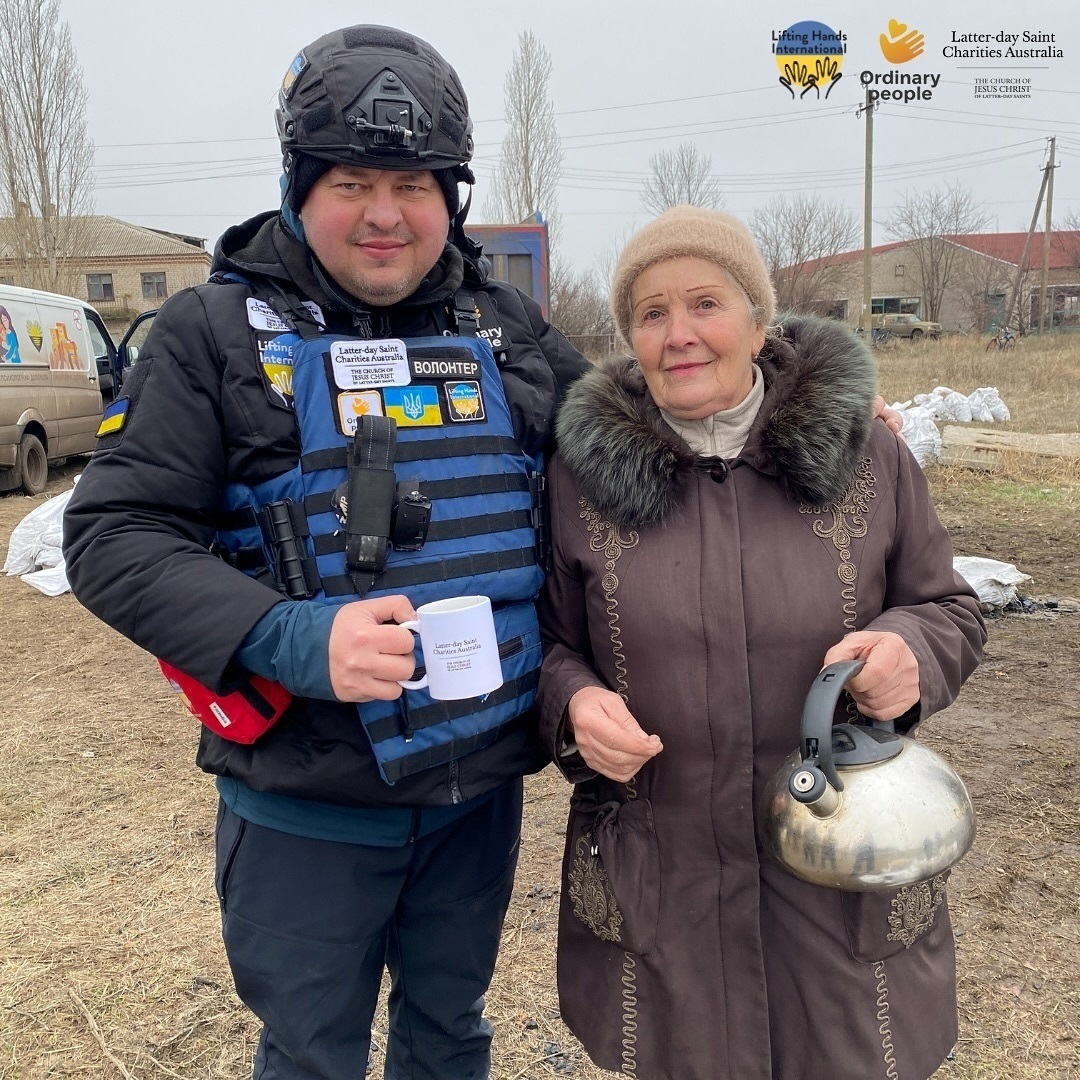 Oleh Yakovlev with a resident of Volnovakha district during another humanitarian missionФото: Волноваха.City
Oleh Yakovlev with a resident of Volnovakha district during another humanitarian missionФото: Волноваха.City
"We don't know if we'll be able to return again"
The volunteer says that despite the difficult life, even in frontline territories, people continue to live and even find joy in everyday things.
"Our main task is not only to deliver aid but also to find time to simply talk with people. They are very surprised when we talk with them because most humanitarian missions come quickly, deliver aid, and leave," the man explains.
During such conversations, people share various stories from their lives. Sometimes they even find the strength to talk about frightening events with humor.
"In Novooleksandrivka, men told us how they went fishing, and a bridge was blown up near them. This was before Yalta. According to them, many rockets hit there. They say that fish started jumping out, flying, and they were amazed because they had never seen such a wonder. Well, these are frontline stories," Oleh recalls.
Among the stories the man shared, one incident from Bohoyavlenka stands out. The volunteers personally knew an American citizen named Daniel Martindale. After Russian troops occupied the village, he stated that since February 11, 2022, he had been in Ukraine and was transmitting coordinates of Ukrainian military facilities to Russia. He is now in Russia, allegedly evacuated from Ukraine by Russian security forces. Oleh notes that every time they were in Bohoyavlenka near the medical station where this enemy agent lived nearby, shelling occurred.
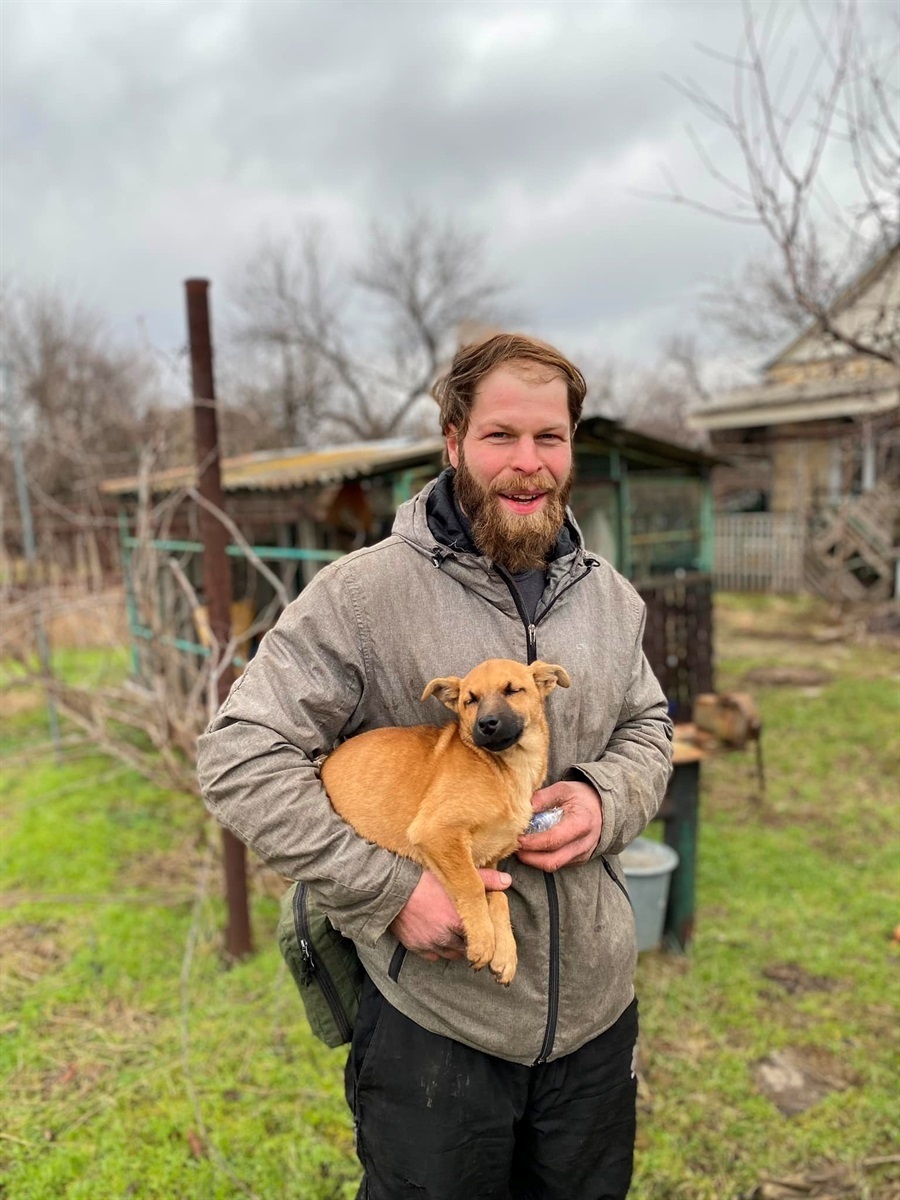 Daniel MartindaleФото: Волноваха.City
Daniel MartindaleФото: Волноваха.City
"He would tell us how awesome Ukrainians were. Each time I asked what he was doing there. He would answer that his parents were farmers, so he was studying agriculture there, and he would show us his goats," the volunteer recalls.
Volunteer trips to frontline territories are always associated with risk to life. Oleh spoke about several instances when his team came under fire. The most difficult for him was an incident on September 12, 2023. Volunteers, along with community leadership, arrived in Vodyane on another mission.
"It was clear, sunny weather. The enemy spotted us and began shelling. We managed to hide in the basement of a small house that we used as a 'volunteer headquarters.' Unfortunately, that day one woman, an elderly lady, was killed. We miraculously managed to leave, and for a month, we couldn't return. A month later, people told us that we were truly lucky that day because the occupiers ran out of ammunition, which allowed us to slip away. And a couple of hours after we left, there was a direct hit on that basement and house where earlier we, 12 people, had been hiding. Our medicines and everything we brought were burned," the volunteer recounts.
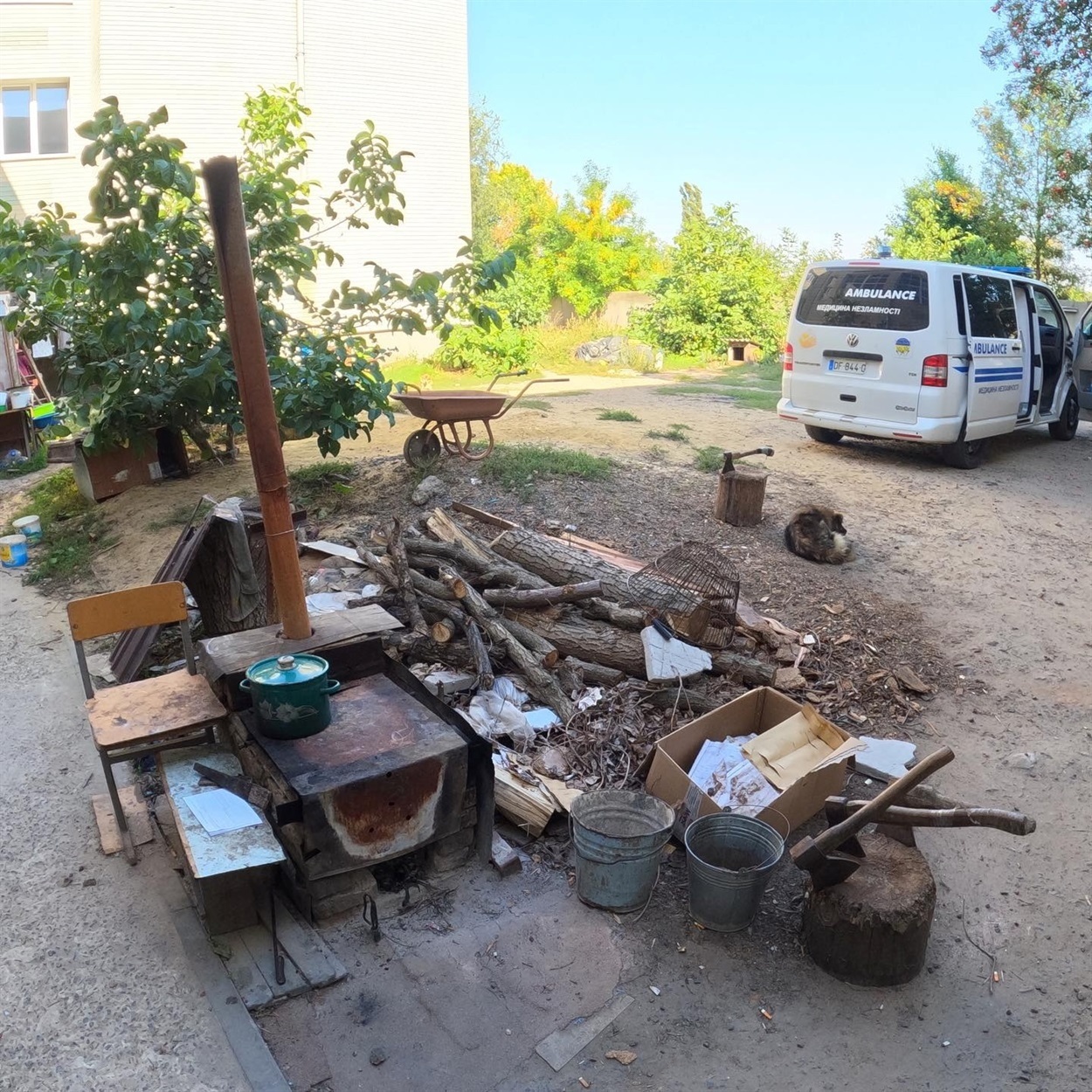 Daily life of residents in frontline settlements of Donetsk regionФото: Волноваха.City
Daily life of residents in frontline settlements of Donetsk regionФото: Волноваха.City
That same day, returning from Vodyane, they stopped in Bohoyavlenka.
"Our local activists set a table in honor of my birthday, a frontline-style celebration. And again, shelling began, with artillery flying right over us. That was my second birthday," Oleh recalls.
The work of volunteers is constantly associated with risk. Oleh shared that he invited many of his journalist friends and acquaintances to join their trips, but most are afraid.
"Indeed, well, it's scary, and we are afraid too. When there's no fear — that's already abnormal," the volunteer admits.
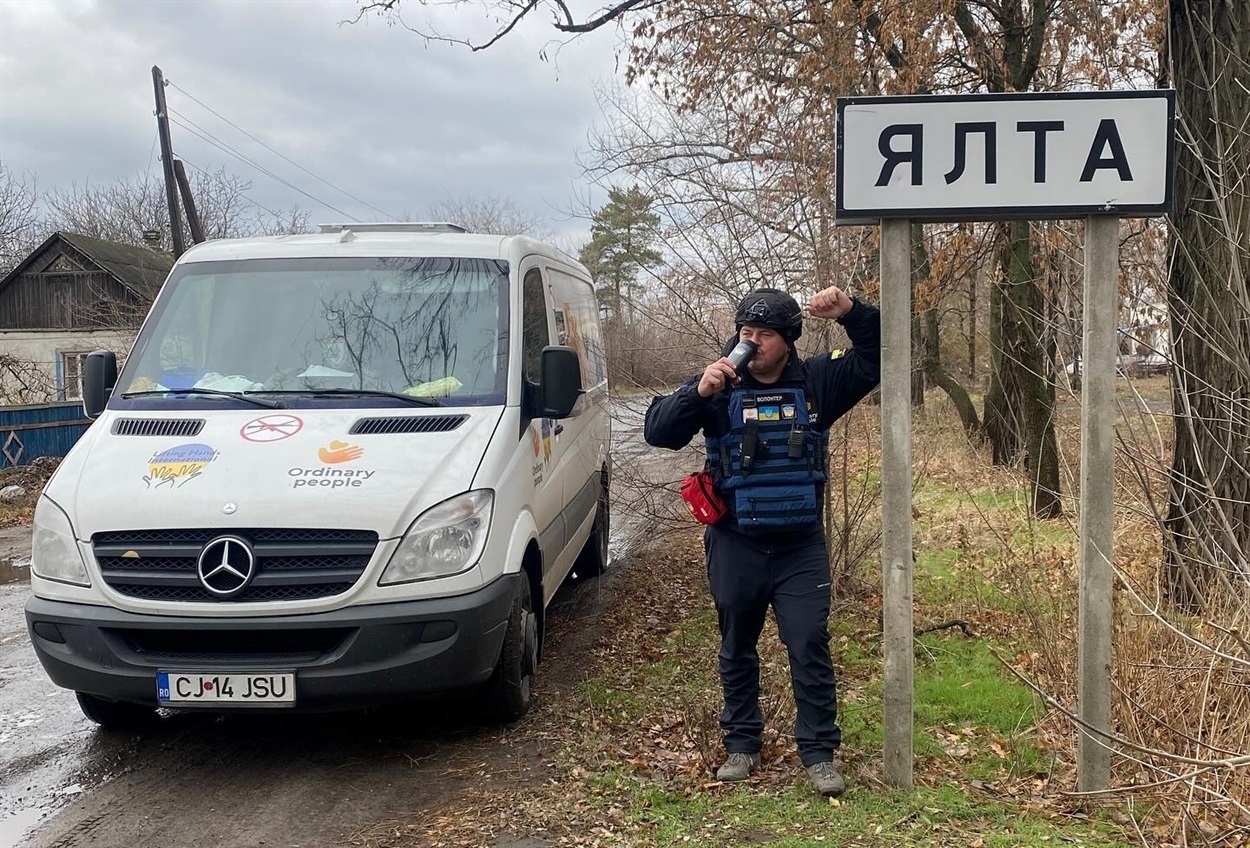 Oleh Yakovlev near Yalta in Volnovakha districtФото: Волноваха.City
Oleh Yakovlev near Yalta in Volnovakha districtФото: Волноваха.City
Despite all the difficulties and dangers, Oleh and his team continue to go on missions. They understand that their help is just a small part of the overall picture of needs in frontline territories, but even this drop can be decisive for specific people.
"We deliver aid and don't know if we'll be able to return again. Often we arrive and see that a village or town where we were last time can no longer be reached — fighting is going on there. And then you realize that the food aid we delivered was possibly the last for these people before evacuation or occupation," Oleh shares.
This material was published with the support of the Association "Independent Regional Publishers of Ukraine" and Amediastiftelsen as part of the Regional Media Support Hub project. The views of the authors do not necessarily coincide with the official position of the partners.



